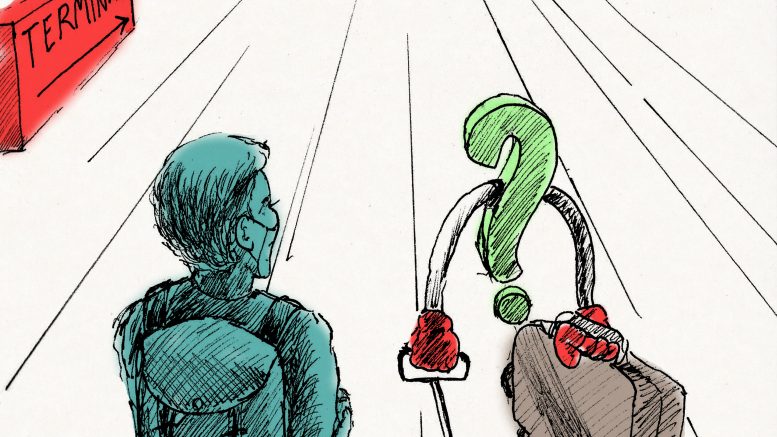I can tell from experience that leaving your home country is never easy. Whether it is saying goodbye to your family and friends or missing the food and amenities you had grown accustomed to, international students — sooner or later — encounter a nostalgic episode. Besides being homesick, international students also suffer from a grotesque lack of support. Getting lost around campus, poor signage at facilities and the complete lack of guidance all contribute to the struggles of new arrivals. As a newly arrived student myself, fresh off the plane from Honduras, I know all about it.
Recently, I said goodbye to everything I know and decided to move to Winnipeg to pursue my degree at the University of Manitoba. After a quick flight and routine airport security checkups, I was on my way to the university’s residences. Upon arrival, there was little to no signage showing where students had to check in and, to my surprise, I realised my Uber driver had left me at the back of the building, leaving me to carry three 50-pound travel bags to the front of the building while it was -25 C outside.
When I was finally able to carry everything to the front, I received three brochures — none of which contained a map of the university, let alone the city. All the information provided, though useful, explicitly regarded residence. Yet it still fell short of discussing dining hall services — vital information for most students living in residence, considering most of the buildings require a meal plan. As if getting lost on arrival was not enough, while looking for the dining hall, I ended up lost again with no one to assist me in the lobby.
I am not one to feel defeated easily, but as I laid down in my newly acquired bed, I wondered if this was how all international students were welcomed — to my surprise, it was. While talking to other students the following day, I realized I wasn’t alone. Most faced similar problems when trying to find the laundry room, purchase their bus card or find a phone plan.
International students make up 21.9 per cent of the student population and, depending on the program, pay almost four times more tuition than domestic students. Despite representing a significant source of income for the university and province, most remain unsupported.
The lack of support provided makes international students feel like they are merely a source of income. In fact, the Canadian government often highlights the economic potential of international students in their educational strategies, while Canadian universities propagate the ideals of diversity to recruit more students from abroad. Saba Safdar — a professor of psychology at University of Guelph — pointed out that despite most schools having international student centres, they do not always meet the needs of students. Safdar also points out communication is a big problem and information does not always reach students.
Despite these issues, the shared experiences of international students provide an opportunity to make new friends. I was able to meet incredible individuals who taught me how to use public transportation, helped me get some paperwork together and showed me around the city. Though I certainly appreciate the assistance I received, I cannot help but reflect on all those students who are unable, for various reasons, to openly ask their peers for help.
The lack of support for newly arrived international students is limiting students from enjoying their college experiences. The university needs to improve their support system for new arrivals by providing widely available resources and knowledge for students of all backgrounds. To put it in simple terms, the U of M must do a better job at making us feel at home. This could dramatically improve international students’ lives and, in the process, hopefully relieve the yearning nostalgia I imagine most feel upon their arrival to Winnipeg.





